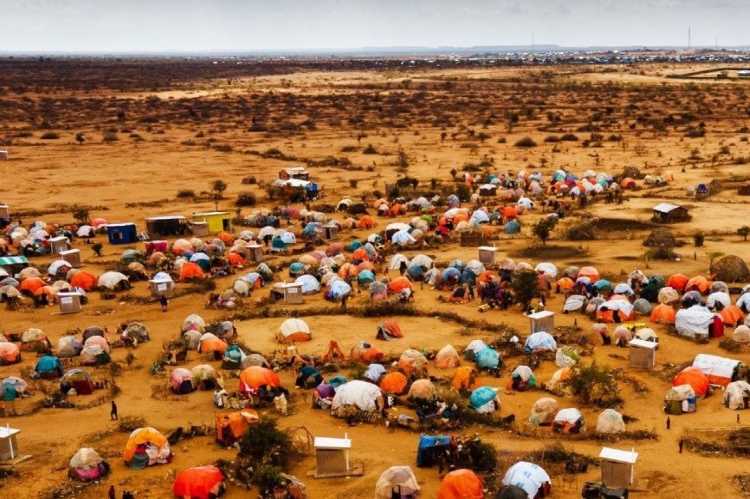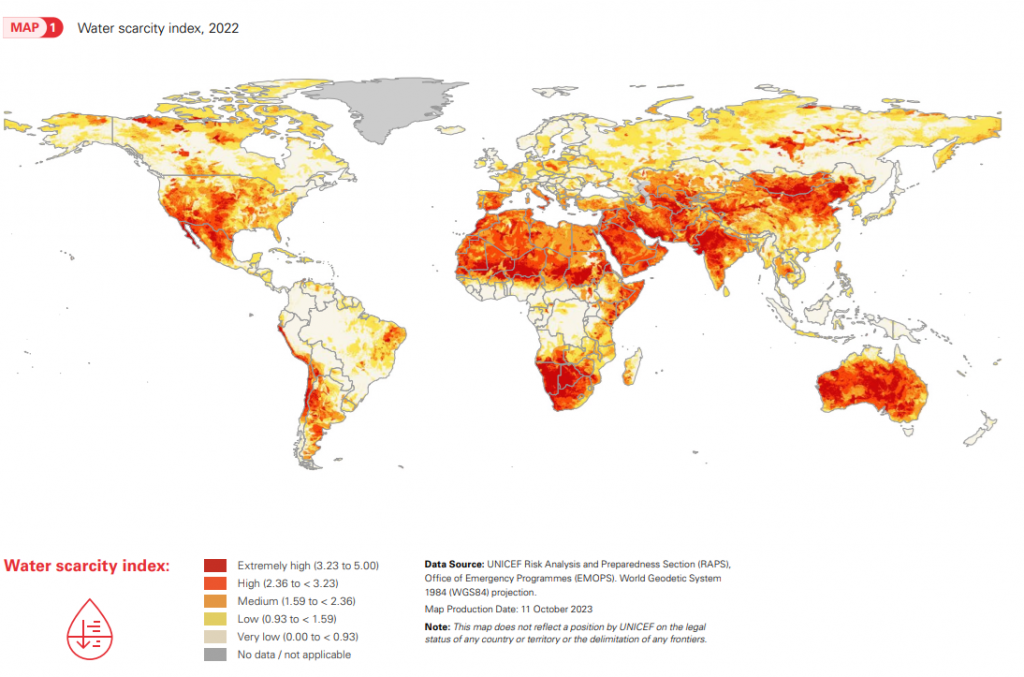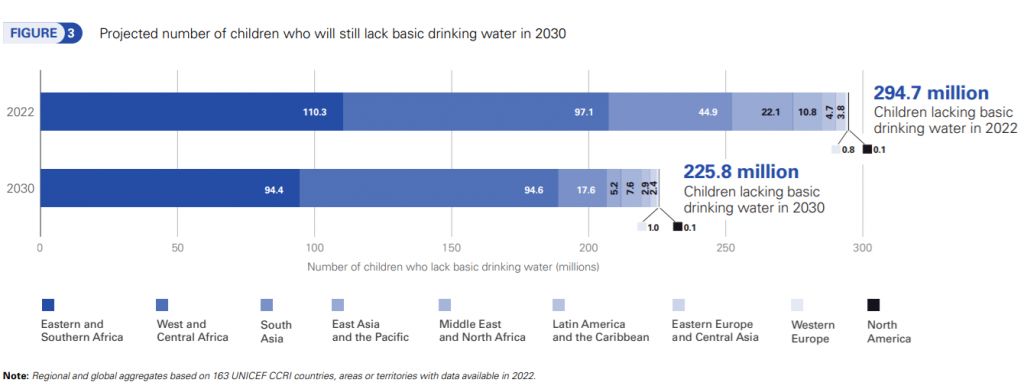
The world is grappling with the disproportionate impact of climate change on children. A UNICEF report, The Climate-Changed Child, offers a stark reminder of the devastating effects of this crisis on the most vulnerable sections of people, emphasising the urgent need for collective action to safeguard their future.
Central to this issue is children’s inherent vulnerability to climate change. Their developing bodies and immune systems are more prone to the health risks associated with extreme weather, water scarcity, and air pollution. Moreover, the psychological trauma of displacement and loss adds to their distress, disrupting education and threatening their emotional well-being.
The report underscores the alarming rise in children’s exposure to extreme weather events, a direct result of global warming. These events heighten the risk of injury, death, and psychological trauma for children, disrupting their lives and education, and leaving long-lasting emotional scars. For instance, the 2012 Pakistan floods displaced over 3 million children, and the 2013 Typhoon Haiyan in the Philippines rendered over 1.7 million children homeless.
READ I Rise in diabetes cases: A healthcare crisis or pharmaceutical conspiracy
The Climate-Changed Child
Water scarcity, another grave outcome of climate change, poses a significant threat to children’s health. Limited access to clean water leads to dehydration, malnutrition, and waterborne diseases, disproportionately impacting children. This scarcity impedes their physical development and exacerbates societal inequalities. According to UNICEF, 432 million children currently live in high water stress areas, a number projected to increase to 660 million by 2040.
Air pollution, intensified by climate change, is a silent killer affecting children’s health. Their developing lungs are especially vulnerable to air pollutants, elevating the risk of respiratory issues, heart disease, and even cancer. This polluted environment infringes upon their basic right to clean air, compromising their long-term health. The World Health Organisation reports that air pollution annually causes 7 million deaths, with children being particularly susceptible.


The report also highlights the growing concern of food insecurity, exacerbated by climate change’s impact on agriculture. Extreme weather events disrupt food production and distribution, leading to increased malnutrition and hunger among children, stunting their growth and depriving them of essential nutrients. The Food and Agriculture Organisation states that 690 million people globally suffer from hunger, with the majority of malnutrition-related deaths occurring in children under five.
Additionally, displacement, a result of extreme weather, water scarcity, and food insecurity, further compounds children’s hardships. Displaced children often face violence, exploitation, and abuse, losing their sense of security and stability. The loss of homes, communities, and cultural roots leaves deep emotional scars, affecting their future prospects. The Internal Displacement Monitoring Centre notes that in 2021, 33 million children were internally displaced due to conflict and violence, with climate change as a significant factor.
The report asserts that “climate change is a child rights crisis,” highlighting the need for immediate action. It calls for global efforts to reduce greenhouse gas emissions, invest in renewable energy, and support developing countries in adapting to climate change.
To shield children from the dire impact of climate change, immediate action is imperative. We must transition to a clean energy economy, reduce our carbon footprint, and invest in sustainable development. Equipping children with quality education and healthcare is crucial to building resilience in a changing climate.
The consequences of climate change extend far beyond environmental degradation, wreaking havoc on the lives of the most vulnerable—children. The UNICEF report paints a stark picture of the devastating impact climate change is having on children around the globe, highlighting the urgent need for concerted action to protect their future.
Climate change is a complex issue with far-reaching consequences. It is essential to address the root causes of the problem, such as greenhouse gas emissions, deforestation, and pollution. Only then can the world begin to mitigate the effects of climate change and protect our children from its devastating impact.

